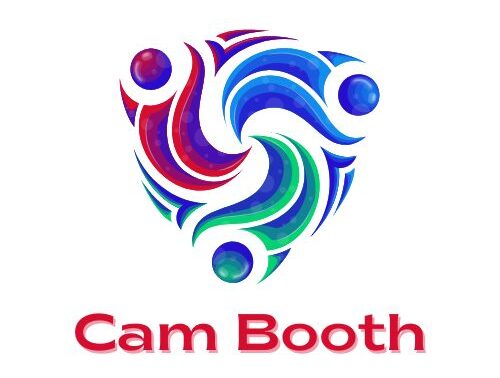Digital marketing is one of the fastest-growing and most in-demand career paths today. Whether you’ve just graduated, are considering a career shift, or want to add new skills to your resume, digital marketing offers endless opportunities for personal and professional growth.
This blog will explore why it is such a compelling career choice, the variety of roles you can pursue, and tips to kickstart your digital marketing career. By the end of this article, you’ll know how to start building your path toward success in this dynamic industry.
What is Digital Marketing?
it involves promoting product or services through online channels such as search engines, social media, email, and websites. Unlike traditional marketing, which relies mostly on print media and TV ads, digital marketing leverages internet technology for real-time targeting, measurable performance, and scalable reach.
Digital marketing encompasses a vast range of strategies, including:
- SEO (Search Engine Optimization): Improving a website’s visibility on search engines like Google.
- Social Media Marketing: Creating content and advertisements for platforms like Instagram, LinkedIn, and TikTok.
- Content Marketing: Developing blogs, eBooks, and videos to connect with audiences.
- Pay-Per-Click Advertising (PPC): Using paid ads to drive targeted traffic.
- Email Marketing: Building engagement and customer trust through personalized email campaigns.
Now, imagine being part of the engine that helps businesses grow, connect with customers, and adapt to changing consumer trends. This is the heart of what digital marketers do.
Why Is Digital Marketing a Great Career Choice?
1. High Demand Across Industries
The demand for skilled digital marketers is skyrocketing. According to LinkedIn’s Emerging Jobs Report, roles in digital marketing (like SEO specialists and social media managers) rank highly among the most sought-after positions. Companies across every industry—from fashion and tech to non-profits—need experts to grow their online presence and maintain competitiveness.
2. Lucrative Earning Potential
The earning potential in it is a major draw. Entry-level roles like digital marketing coordinators often start at $40,000 to $50,000 annually, while experienced professionals in managerial roles can easily earn $80,000 to $120,000 per year or more. Specializations, such as PPC experts or SEO strategists, often come with higher salaries due to increased demand for niche skills.
3. Diverse Career Paths
it is an umbrella term that covers various specialties. Whether you’re a creative thinker who loves storytelling or someone who thrives on analytics, there’s a role for you:
- Content Marketing Manager: Create and manage blogs, articles, and branded narratives.
- SEO Specialist: Optimize websites to rank higher on Google’s search results.
- Social Media Manager: Plan and execute campaigns on platforms like Facebook, Instagram, or TikTok.
- Digital Analyst: Use performance data to refine online campaigns.
- Email Marketing Strategist: Design effective email outreach programs.
Because businesses need a mix of skills across these areas, it offers diverse opportunities that cater to your interests and strengths.
4. Career Growth Potential
it offers clear growth opportunities. Working in entry-level roles lets you gain valuable experience in tools like Google Ads, Facebook Business, or HubSpot, which you can then leverage for higher positions. Many professionals eventually work toward roles like Head of Digital Marketing, Marketing Director, or Chief Marketing Officer (CMO).
Additionally, since this is a constantly evolving field, staying updated with trends, like AI-based ad targeting or voice-search SEO optimization, can further boost your marketability.
5. Remote Work Opportunities
The remote-friendly nature of digital marketing is another big plus. Many companies allow marketers to work from home or freelance. Whether you prefer working part-time, full-time, or as an independent consultant, it gives you the flexibility to design your career around your lifestyle.
6. Creative and Analytical Balance
it combines the best of both worlds—creativity and analytics. From brainstorming viral ad concepts to using data to measure effectiveness, you’ll always have variety in what you do. This balance keeps your work engaging and opens up opportunities to grow across both skillsets.
How to Start Your Career in Digital Marketing
If you’re ready to take the leap into digital marketing, here are actionable steps you can take to build a strong foundation for your career.
Step 1: Learn the Basics
Start by familiarizing yourself with the foundational concepts of digital marketing:
- What is SEO, and why does it matter?
- How do social media algorithms affect campaign performance?
- What makes email campaigns successful?
Free resources like Google’s Digital Garage, HubSpot Academy, and edX offer online courses to help you get started.
Step 2: Earn Certifications
Gaining certifications not only helps you learn but also shows potential employers that you’re serious about digital marketing. Here are some valuable options:
- Google Ads Certification (Free)
- HubSpot Content Marketing Certification (Free)
- Meta (Facebook) Blueprint Certification
- Google Analytics Individual Qualification (GAIQ)
These certifications are globally recognized and can add significant weight to your resume.
Step 3: Build a Portfolio
Showcase your skills with hands-on projects. Start a blog, manage social media for a small business, or create sample ad campaigns. Platforms like Canva and WordPress make it easy to develop content even as a beginner. Additionally, freelancing on websites like Upwork or Fiverr can help you gain practical experience.
Step 4: Stay Updated
The digital marketing landscape evolves rapidly, with new platforms, algorithms, and trends emerging regularly. Follow marketing blogs like Neil Patel, Moz, or Social Media Examiner for the latest updates.
Additionally, engage with online communities on LinkedIn or Reddit marketing groups to learn from peers and industry experts.
Step 5: Network Strategically
Networking is key to building your career in any industry. Attend digital marketing webinars, conferences, or meetups to connect with professionals and recruiters. Tools like LinkedIn can also help you build relationships with industry leaders.
A Career That Never Stops Growing
Digital marketing isn’t just a job—it’s a dynamic, fast-moving career that helps you connect brands with audiences on a global scale. The skills you learn are transferable, ensuring high job security even as industries evolve.
By staying curious, continually learning, and building practical experience, it’s entirely possible to craft a fulfilling and lucrative career in digital marketing. Whether you’re fresh out of school or switching from another field, there’s always room to grow in this exciting industry.
If you’re ready to start your journey, invest in learning new skills today and watch as doors open tomorrow.
FAQs
1. What skills do I need to start a career in digital marketing?
To begin a career in digital marketing, you’ll need a mix of technical and soft skills. Key skills include SEO, social media management, content creation, data analytics, and email marketing. Additionally, strong communication, creativity, and adaptability are crucial for success in this field.
2. Do I need a degree to work in digital marketing?
While a degree in marketing or a related field can be helpful, it’s not always necessary. Many successful digital marketers have gained skills through online courses, certifications, and hands-on experience. Employers often prioritize practical skills and industry knowledge over formal education.
3. How much can I earn in digital marketing?
Digital marketing salaries vary based on role, experience, and location. Entry-level positions typically range from $40,000 to $60,000 annually, while experienced professionals like digital marketing managers can earn upwards of $100,000 or more.
4. How do I gain practical experience in digital marketing?
You can gain practical experience through internships, freelance projects, or by creating personal projects, such as managing a blog or building a social media presence. These opportunities allow you to apply learned skills in a real-world setting and build a portfolio.
5. What tools should I learn to succeed in digital marketing?
Familiarity with tools like Google Analytics, SEO platforms (e.g., SEMrush, Ahrefs), social media management tools (e.g., Hootsuite, Buffer), and email marketing software (e.g., Mailchimp, HubSpot) can give you a competitive edge in digital marketing.
6. Is digital marketing suitable for career changers?
Absolutely! it is an accessible field for career changers, offering opportunities to leverage existing skills while learning new ones. Its demand for diverse perspectives makes it an excellent choice for professionals transitioning from other industries.









